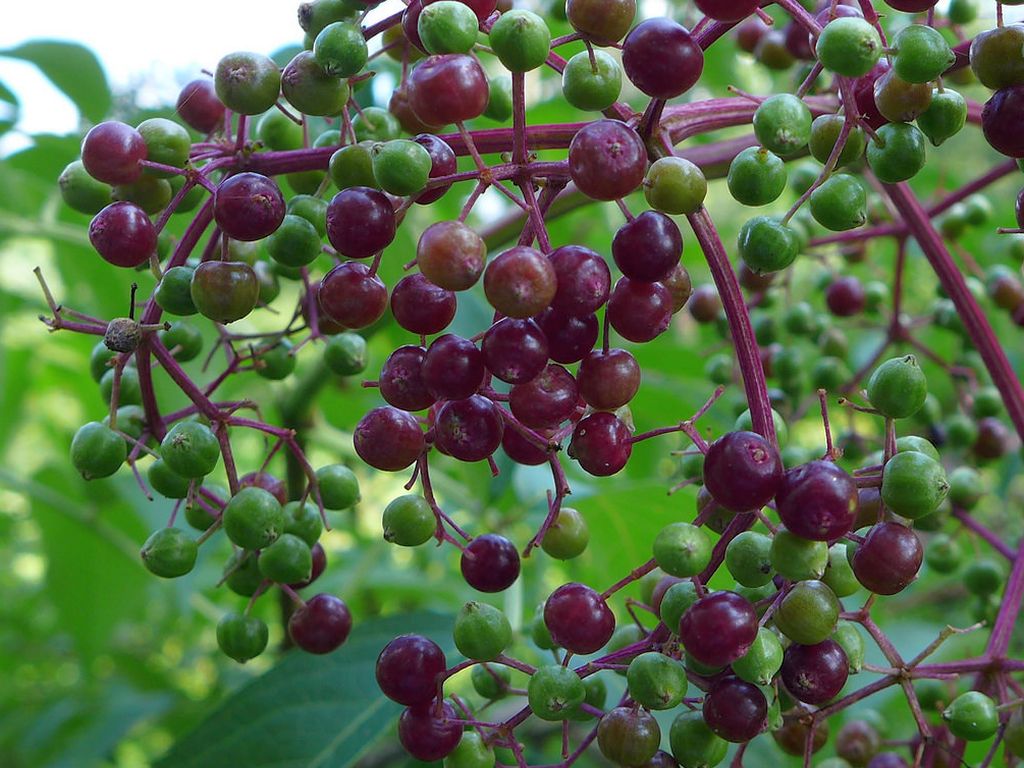
Ripe elderberries (Sambucus genus) are hard to find this month. They’re so popular with birds that the ripe ones disappear immediately.
The cluster, above, was the only purple one I found last week. The rest were carefully picked over, leaving green berries and bare stems.
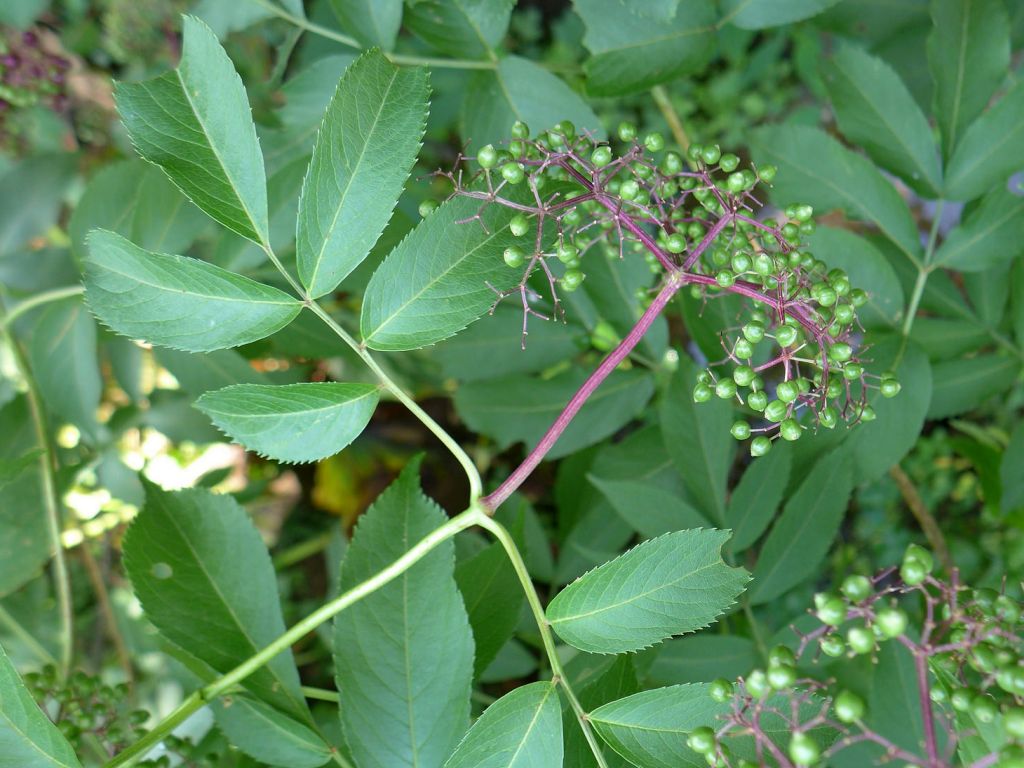
Other fruits await birds, too: black raspberries (Rubus genus) in the thickets, hackberries (Celtis genus) in the trees, and porcelain berries (Ampelopsis glandulosa) on the vine. Unfortunately, the porcelain berries are invasive.
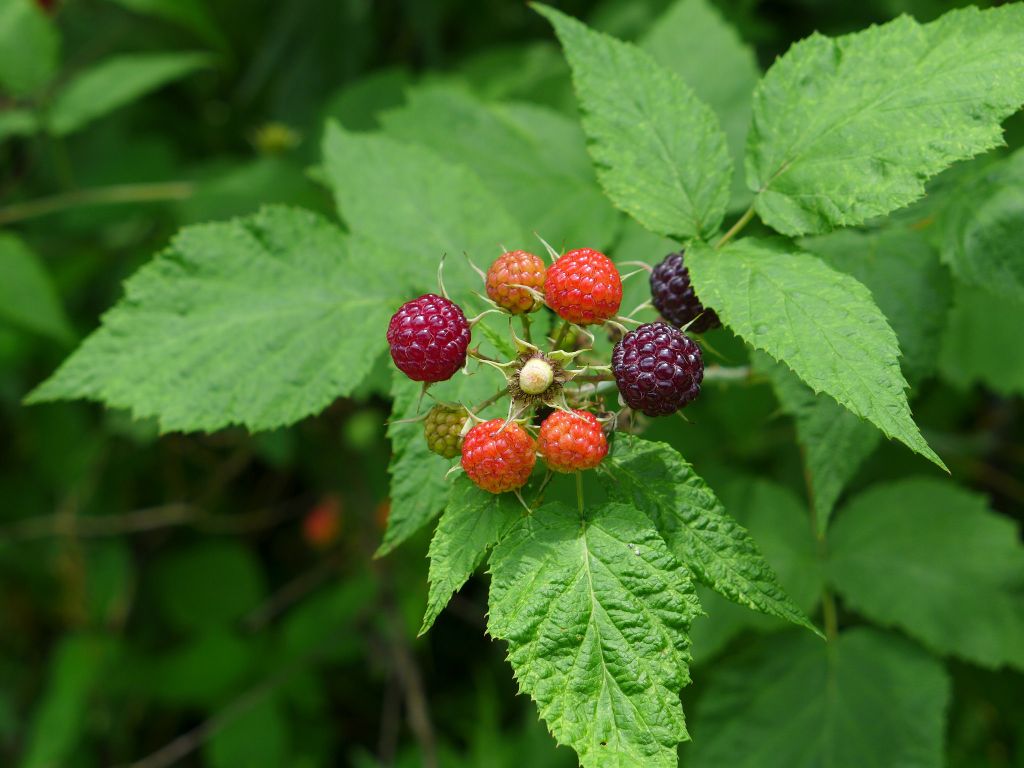
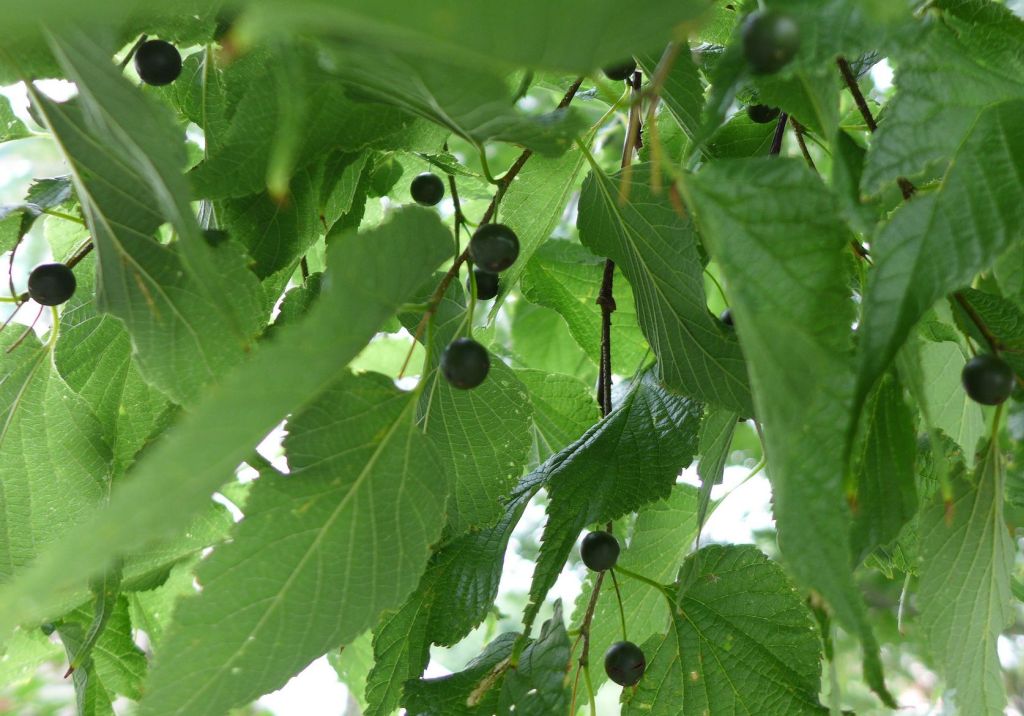
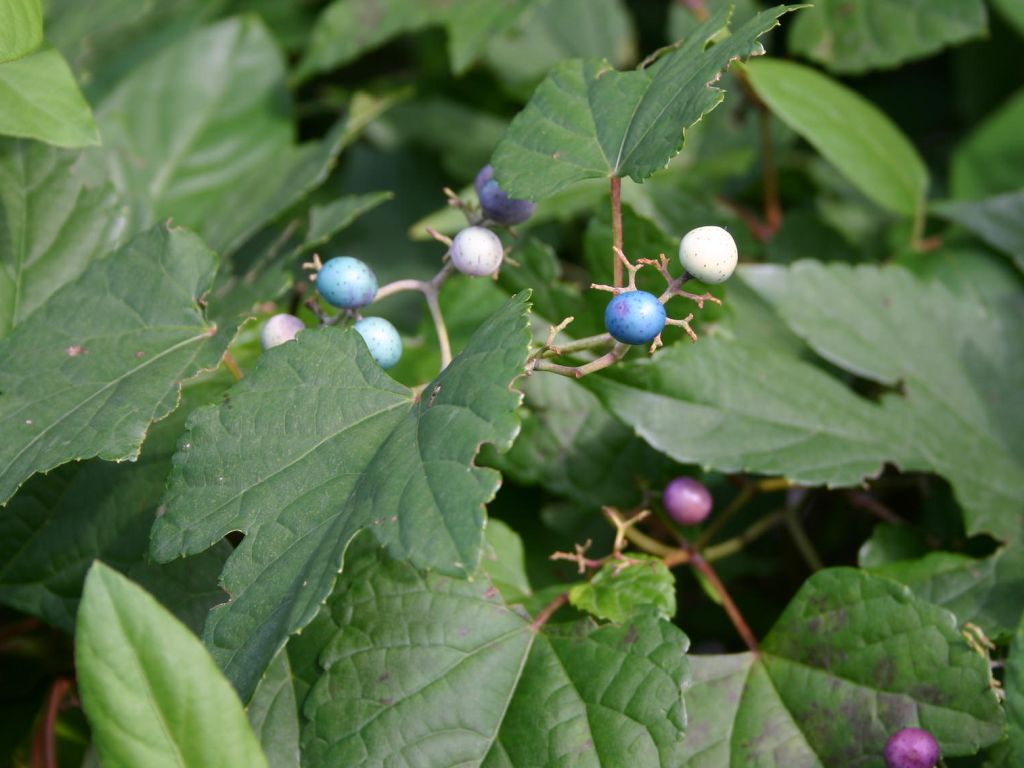
It won’t be long before the poke berries turn purple.
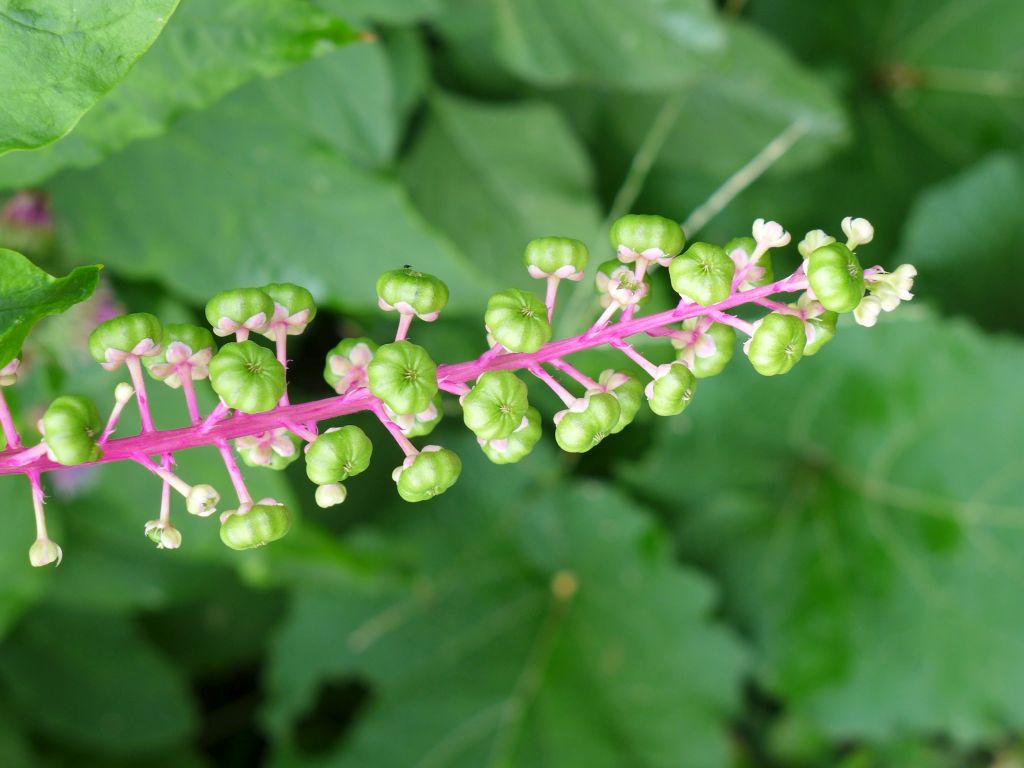
It’s a colorful conspiracy to tempt birds to eat the fruit and disperse the seeds, perhaps far away on migration.
(photos by Kate St. John)
Those aren’t “ripening blackberries” — they’re ripening black raspberries! You can tell especially by where one berry has been removed — the little white plug left behind is the tell-tale. Raspberries come off the stem hollow; blackberries keep that core in the berry.
Black raspberries are so much tastier than blackberries (or red raspberries) in my opinion. They’re also especially delicate and hard to transport, thus hard to find available to buy, but always worth it when you find them!
Thank you, Rachel K. I’ve made the change.
Choke cherries are another attraction.
Yes, I totally agree about black raspberries. There used to be a wild patch I would stop at (gone now) where I once ate ~100 on my way up the hill & ~100 more on my way back down the hill! ?